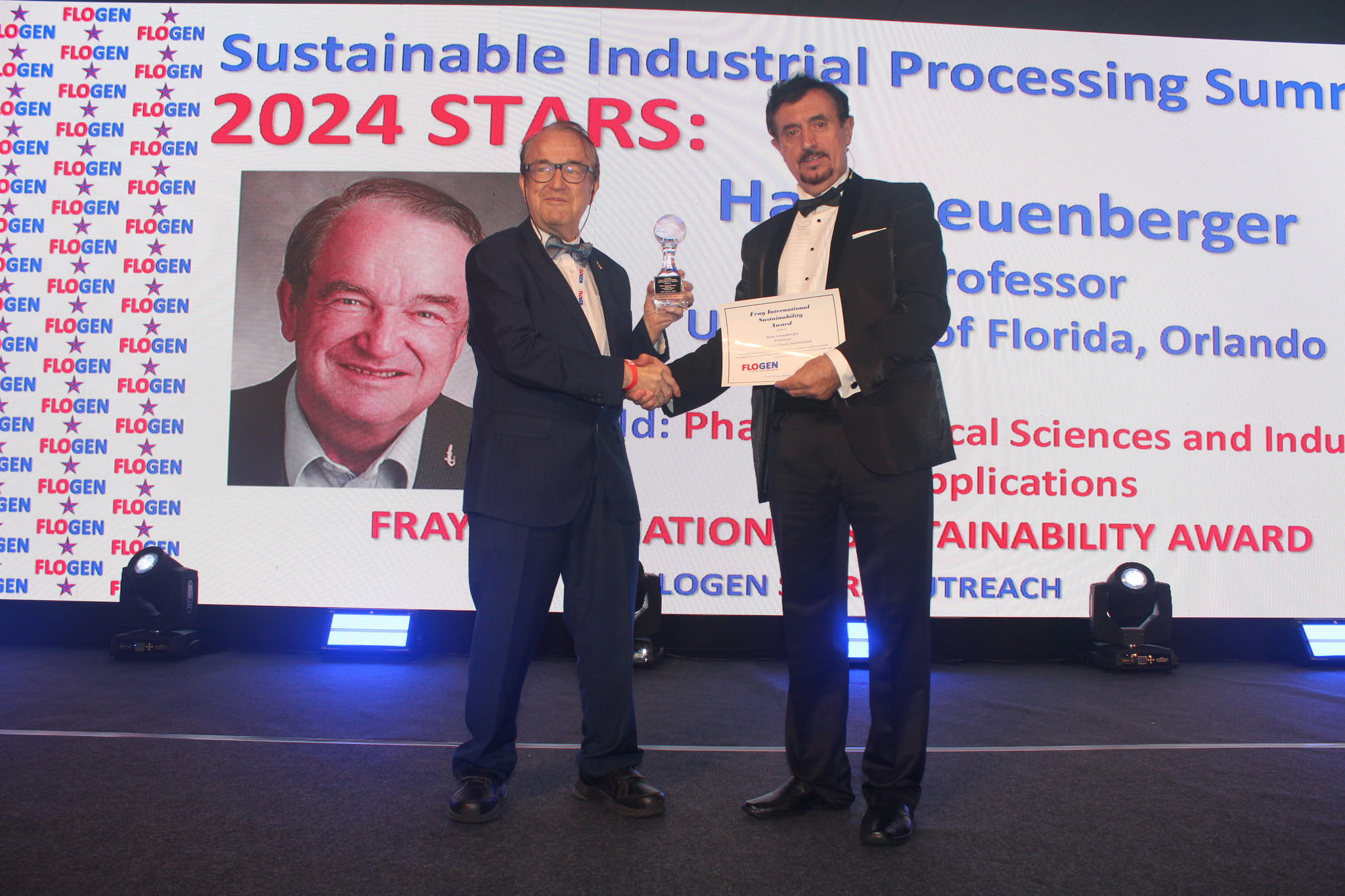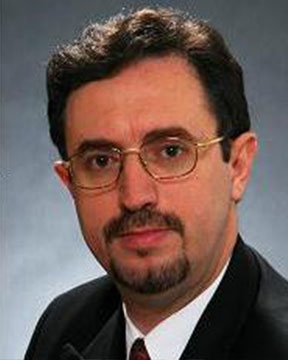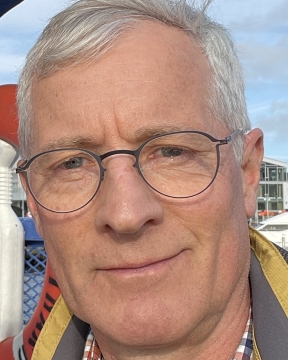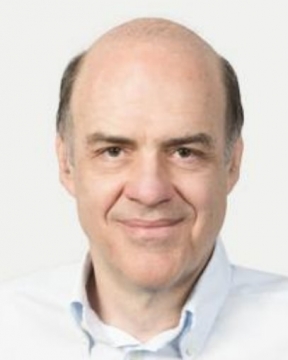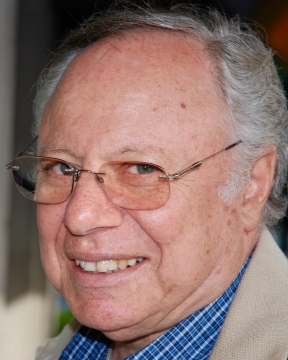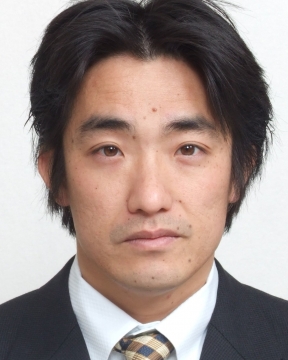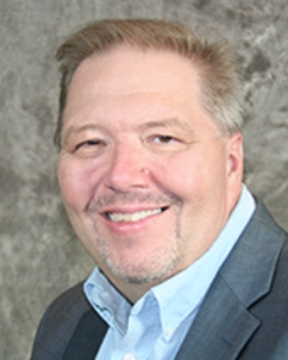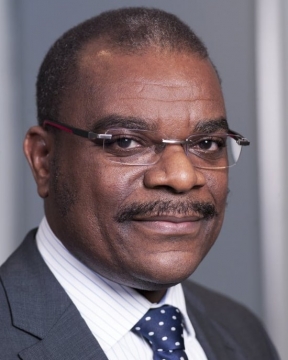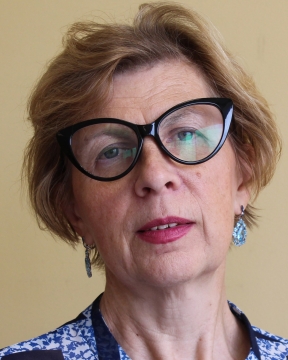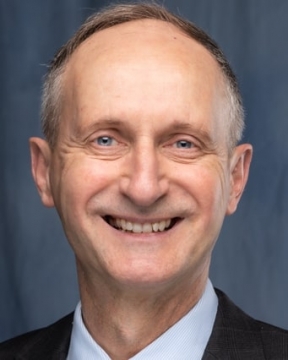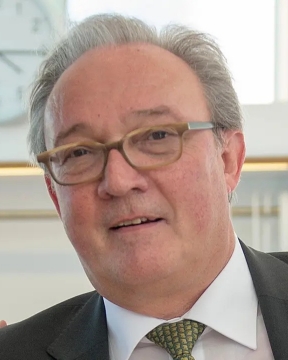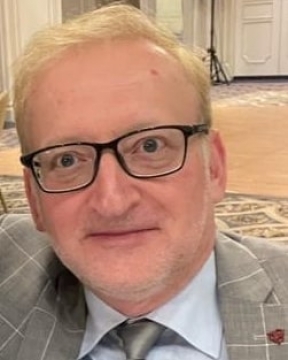On Pharmaceutical Sciences and Industrial Applications for Sustainable Development

Bio | CV | Publications
This major symposium is in honor of the distinguished work and lifetime achievements of Prof. Hans Leuenberger, a very well-known professional with deep rooted impact in pharmaceutical sciences and its applications for sustainable development.
Prof. Hans Leuenberger, 81, was educated in the surroundings of Basel. Switzerland, hosting major world leading pharmaceutical companies like Novartis, Roche, Actelion (today: Johnson & Johnson) and many small and medium sized pharmaceutical and other enterprises supporting the pharmaceutical industry. Today, the area of Basel is an Innovation Hub with a worldwide impact on pharmaceutical sciences. The life and its quality of a human being are the result of its environmental exposure and its impact.
Hans Leuenberger grew up in a rural area of Gelterkinden, known for its excellent schools providing special classes for interested students as optional courses. Since Hans was driven by an unquenchable thirst for knowledge, he took advantage of this fact before enrolling at the Realgymnasium in the city of Basel. Thus, he could save one year of education together with three fellow students from Gelterkinden. The early exposure to the rural nature in the Jura fascinated Hans to explore the geology of the environment including fossils of the former Jurassic Park some millions of years ago. Thus, he started to collect fossils and minerals, leading to later study of earth sciences. In this context, he was invited during the London science fortnight to be interviewed by the BBC television on the topic of his hobby. Hans also attended with his Swiss fellow students the reception of Prince Philip Duke of Edinburgh:

At that time, he was not aware that he will meet him again later in his function as Vice President of the Swiss Academy of Engineering Sciences (www.satw.ch) during a convention of the Royal Academy of Engineering (RAE). Prince Philip was an engineer and member of the RAE. However, Hans was also interested in exploring the universe and knowing more on the topic of nuclear science. Thus, he received his master diploma in astronomy, mathematics with the major in experimental physics at the University of Basel after submitting his master thesis1 on the topic «Intensity measurements at the source of polarized deuterons» in experimental nuclear physics. Subsequently, he wrote his PhD thesis2 in nuclear science under the guidance of Prof. Paul Huber with the title «Effect of an External Electric Field on the Decay Constant of 99Tcm Halogen Complexes». It was known that the half-life of 99Tcm could be changed since the decay depends on the quantum mechanical probability [Ψ(0)]2 of the electron being close to the nucleus. This effect also is expected for isotopes decaying by electron capture such as 89Zr. Paul Huber was interested in changing the half-life of radioactive waste. At that time, Hans enjoyed lectures by Prof. Paul Scherrer (https://en.wikipedia.org/wiki/Paul_Scherrer ). Both professors were pioneers in nuclear science.
As PhD student Hans acted as part-time teacher in physics, as Paul Huber’s lecture assistant, respectively, as head of his α-radiation laboratory Hans was involved in the evaluation of samples from the reactor «Lucens» (https://en.wikipedia.org/wiki/Lucens_reactor), being automatically shut down https://de.wikipedia.org/wiki/Reaktor_Lucens) as a result of a partial core melt.As PhD student in nuclear physics, he was recruited for his Swiss military service to deliver lectures in nuclear science for training Swiss AC Army specialists in his rank as Chief Physicist. He succeeded Dr Simon Aegerter (https://www.quora.com/profile/Simon-Aegerter), Chief Physicist, as President of AGAS (working party of AC-specialists). In 1969 Hans married Adriana Rusu, physicist, educated in Romania, in Switzerland after their request was refused to get married in Bucharest. In 1971 Prof. Huber, after being hospitalized, reviewed the PhD thesis of Hans Leuenberger. Thus, Hans was deeply impressed by his diligence and his support. Inspired by his colleague Dr. Stephan Gagneux, Hans joined the pharmaceutical company SANDOZ as head of the «Drug-Excipient Compatibility Lab» in 1971. He introduced DoE (Design of Experiments) for efficiently testing 3H labeled drugs directly in a tableting mixture3. This introduction only was possible due to the positive environmental conditions that his superior allowed him to construct in thanks to the support by the SANDOZ engineering department a new equipment for analyzing degradation products with thin layer chromatography. After two years he was promoted to become research group leader at the SANDOZ formulation department. Hans developed a device4 to determine the correct amount of granulating liquid needed for the size enlargement of pharmaceutical powders. This innovation only could be realized thanks to a close cooperation with the engineering department before SANDOZ decided to reduce the tasks of the SANDOZ engineering department during the overhead cost value analysis by McKinsey for cost reduction purposes. Interestingly, SANDOZ introduced worldwide in all affiliated companies this granulation procedure for low soluble drug substances to avoid batches to be rejected due to poor quality. In 1979 Hans Leuenberger spent a sabbatical at the University of Michigan in Ann Arbor to collaborate with William I. Higuchi, Norman F. Ho and Everett N. Hiestand. In 1980 he was asked by SANDOZ to evaluate as Section Head of Pharmaceutical R&D SANDOZ Spain ad interim to commission this section to be not only involved in the development for new formulations for Spain, but also for the rest of the world. Hans was impressed by the high quality of his collaborators in Spain. However, this result seemed not to be expected by everybody at SANDOZ. Thus, some rumors started, whether Hans Leuenberger should better assume another position in an affiliated company abroad. At the same time, the Basel government decided to strengthen the Institute of Pharmacy at the University of Basel by offering industrial pharmacists such as Hans Leuenberger to be involved as part-time lecturers. Thus, Hans wrote his habilitation thesis in Pharmaceutics «Zur Theorie der Pulverkompression», a physical model5. At the same time Hans was invited by his direct superior Prof. Heinz Sucker to contribute a special chapter on the topic «Introduction to mathematical concepts, design of experiments and scale-up technology» for the German textbook «Pharmaceutical Powder Technology», edited by Sucker, Fuchs and Speiser, Georg Thieme, Stuttgart, in 1978. This chapter was important since during his education at the University of Basel, Hans was educated only to change one factor at a time. In addition, he was fascinated to use Factorial Design for optimizing the composition of pharmaceutical formulations (see https://www.ifiip.ch). This website of Hans also includes a list of articles, books, book chapters, publications in nuclear science, in business ethics, in Swiss History in SWISS PHARMA in PHARM TECH JAPAN, Video clips etc. Hans was always very fortunate to recruit excellent students in pharmaceutical sciences collaborating with him as assistants, PhD students or postdocs. Thus, it is important for him to share his achievements with his collaborators and former PhD students. Michael Lanz was also supporting Hans in the area of Swiss historical research and in the area of new excipients such as UICEL (University of Iowa Cellulose), a polymorph of Microcrystalline Cellulose with potential as a super disintegrant (see videoclip, www.ifiip.ch/downloads). Michael Lanz (michael.lanz@fhnw.ch) is today a close collaborator of Prof. Dr. Georgios Imanidis, (Georgios.imanidis@fhnw.ch), Head of the Institute of Pharma Technology, at the University of Applied Sciences, Northwestern Switzerland, Georgios was an early former PhD student working with Hans. Georgios played a major role in the design of the layout of the Pharma Center at the University of Basel and has the right to supervise PhD students being promoted at the University of Basel. Hans served as Head of the Institute of Pharmaceutical Technology and as Chair of the Department of Pharmaceutical Sciences. Interestingly, when Hans was elected to serve as Dean of the Faculty of Sciences at the University of Basel, the secretary overseeing the office of the Dean resigned. Fortunately, he could hire Marianne Hess as new secretary and they could reorganize the administrative work regarding the monthly faculty meeting, since Hans realized that in the past some decisions at the faculty meetings were at a follow-up meeting reversed by an opinion leader, who did not participate at the previous assembly. Thus, Hans introduced as the new Dean a special meeting with all department heads to prepare the detailed agenda for the monthly general assembly of the faculty of sciences. This measure helped to find the optimal solutions to be subsequently accepted by the faculty assembly.
As Dean, Hans was supported by Nobel Laureate Tadeuz Reichstein and his former PhD students working in the Pharmaceutical Industry. Thus, thanks to late Tadeuz Reichstein, and to the support of friends and collaborators such as Dr Claudia Reinke*, Bruno Krieg, PD (private lecturer) Dr Peter van Hoogevest*, Phares Drug Delivery AG, Prof. Dr Gian-Reto Plattner (ⴕ)* Stefan Winzap, the new Pharma Center of the University of Basel, Klingelbergstrasse 50, CH-4056 Basel, could be realized, and occupied in 2000.
The annual reports 2000 – 2006 show the activities of the Institute of Pharmaceutical Technology (see www.ifiip.ch/downloads annual reports) in the Pharma Center and its worldwide cooperation. The 2005 annual report includes an important proposal of a working party with representatives of the Pharmaceutical Industry such as Dr. Andreas Rummelt*, former CEO of SANDOZ and Prof. Dr. Theodor Guentert* (Roche), Prof. Walther Zimmerli, Volkswagen AutoUni, in reference to the collaboration with the Fachhochschule Beider Basel FHBB, which is today called University of Applied Sciences of Northwestern Switzerland (FHNW), to define the tasks of a Pharmaceutical Engineer. Indeed, the team members* of the working party such as Prof. Daniel Gygax*, Prof. Ernst Hungerbuehler (ⴕ)*, Go Kimura*, Dr Maxim Puchkov*, PD Georgios Imanidis*, Prof. Christian Surber*, PD Michel Ulmschneider*, specialist in Chemometrics at Roche, together with the already above mentioned star (*) persons set the foundation for the new FHNW building in Muttenz (https://www.fhnw.ch/en) and last but not least for the creation of the Switzerland Innovation Park of the Basel area (https://sip.com). In the report 2005 report, Hans also mentioned the closed and open loop model of an academic institution. The open loop model was a prerequisite for the sustainable development of the department of Pharmaceutical Sciences at the University of Basel since in the very beginning Hans was afraid that the Institute of Pharmacy could be closed as in case of the University of Bern and Lausanne due to lack of critical mass of specialists and teachers. Thus, Hans was very happy that his PhD students could work in the laboratories of the pharmaceutical industry, using top equipment, signing an agreement that Hans always had access to the respective laboratory to meet his PhD student and to the local responsible scientist taking care of the needs of the PhD students. An important issue was the freedom of research with respect to the thesis topic and the location of the working site. For this reason, Hans had to ask the Faculty of Science whether t the PhD student is allowed to prepare the thesis in a laboratory which was not owned by the University. Evidently, a model drug was used for certain research ideas to avoid Intellectual Property problems. There was no difficulty to define a PhD research topic in the framework of FDA’s Process Analytical Technology Initiative. These topics fit ideally the goals of FDA for a drug quality system for the 21st century and FDA’s PAT initiative (www.fda.gov/cder/OPS/PAT.htm).

Science Pyramid (Courtesy, A. Hussain, FDA)
It was a pity that the presentation of Jane Woodcock at the University of Basel had to be cancelled due to the second Iraqi war. In 2004 Hans was invited to visit Bosnalijek Company in Sarajevo, Bosnia & Herzegovina. This visit was suggested by a long-term collaborator of the Institute, Dr. S.E. Kocova El-Arini, who had an assignment by UNIDO (United Nations Industrial Development Organization) to provide support for the reconstruction of the pharmaceutical company Bosnalijek after the war in Bosnia. For a sustainable and peaceful world, a multilateral open system is a prerequisite. The annual report 2006 includes the creation CISDEM (Catedra Iberoamericana -Suiza de Desarollo de Medicamentos) under the leadership of Prof. Isidoro Caraballo, who successfully organized numerous CISDEM conventions [Inicio - CÁTEDRA IBEROAMERICANA-SUIZA DE DESARROLLO DE MEDICAMENTOS (CISDEM) (us.es). CISDEM includes the following member countries: Argentina, Brazil, Chile, Cuba, Colombia, Ecuador, El Salvador, Espana, Guatemala, Mexico, Peru, Portugal, Republicana Dominicana, Switzerland, Uruguay. During the CISDEM Forum in Mexico. Hans, as founder, was awarded as Honorary President of CISDEM in 2011 with the following gift:

Bhagwan Dass Rohera, one of the first PhD students after Hans was elected to be head of the Institute of Pharmaceutical Technology at the University of Basel received a scholarship from the Swiss Government. Later Bhaqwan was elected as Professor at the St. Johns, University in New York (roherab@stjohns.edu). After Hans moved to Florida, Bhagwan invited Hans to co-supervise Saurabh Mishra, PhD student at St. Johns, University. After his graduation in 2019, Dr. Mishra is now working for SE Tylose USA, Inc., Pharmaceutical Application Laboratory, Totowa, NJ 07512.
One of the first PhD students of Hans is Dr. Altan Demirdere from Turkey. Altan is now retired after working at NOVARTIS (https://www.linkedin.com/in/altandemirdere/?originalSubdomain=tr) as CEO in Turkey, Hungary and Russia. Former PhD student Andreas Schade also joined NOVARTIS. He recently retired as Regional QA Head Solids Eastern Europe, Middle East, Africa, and India. Initially he was involved in the evaluation of a semi-continuous granulation equipment6 which was manufactured at the Glatt company in Switzerland. For this development the Institute of Pharmaceutical Technology received the Innovation Award of the Cantonal Governments of Basel - City and Basel – Country (https://www.ifiip.ch/awards gallery) in collaboration with the Glatt group, a major pharmaceutical equipment manufacturer and the pharmaceutical company Roche. Hans is mentioned as inventor or co-inventor of 12 patent families, owned by the Glatt group. Former PhD student Benno Doerr continued Andreas Schade’s evaluation at Roche. Hans congratulates his former PhD student Ruth Leu_Marseiler successor of Andreas Schade.
Interestingly, one patent addressing a new method to generate lyophilized bulk material by spray freeze drying was not exploited by the Glatt group. However, Bernhard Luy, a former PhD student of Hans Leuenberger, resigned from his various management positions as COO at the Headquarter of the Glatt group and CEO of Glatt Switzerland and founded MERIDION TECHNOLOGIES. In a co-development with a major Big Pharma company, MERIDION modified the initial technology and was able to commercialize it. Another PhD student, Matthias Plitzko, joined the company from the beginning in continuation of his PhD thesis. MERIDION is now providing the spray-freeze drying technology in the pharmaceutical area, also for aseptic manufacturing, and related areas like diagnostics. Interestingly, it also opened options to manufacture nano particles. This process has a lot of advantages such as to improve the solubility of low water- soluble drugs, to manufacture nanoparticles for medical treatments, for consumer electronics (ear pads), for formulation of precision medicine, for vaccines, mABs and alike. The known advantages of lyophilization are combined with the product presentation as free flowing, homogeneous bulk which significantly increases flexibility for the entire supply chain and has significant product innovation potential. Applications for phage therapy to be used to treat antibiotic resistant bacteria, to develop phages as friendly viruses to eat and destroy only cancer cells without a collateral damage by killing other cells may be further options. Dr S. Natsuyama, Chairman of the Board of POWREX, Hyogo, Japan, is supporting and representing MERIDION taking care of the needs of the pharmaceutical industry.
Nano Science and Technology also played a major role in the preparation of the CASS (Conseil des Académies Scientifiques Suisses, today: Swiss Academies of Arts and Sciences, https://en.wikipedia.org/wiki/Swiss_Academies_of_Arts_and_Sciences).
In this context, Hans invited Dr. M. Roco (https://en.wikipedia.org/wiki/Mihail_Roco) to deliver a presentation on the new topic of Nano Science and Technology. The Proceedings MEGATRENDS, Rise and Fall of Megatrends in Science of this symposium was published by Schwabe in Basel in 2000. Hans had an opportunity to attend as SATW Vice President the symposium on «Nanotechnology Research Directions» (see full report below) under the guidance of Dr. M. Roco:

Today, Nanotechnology plays an important role in the area pharmaceutical sciences, especially in the development of new vaccines based on mRNA technology. The combination of the results obtained in the nanoscale in combination with the tools of Artificial Intelligence, the rising new megatrend in science, will lead to new insights.
It is important that a PhD thesis promotes innovation and the advancement of science. In this context, Hans usually suggested to his PhD students first to get their own view on the topic before starting to read the literature with the goal not to be biased by a third party. In an optimal case the PhD thesis will lead to a disruptive method like the spray-freeze drying technology, with broad IP coverage, or also to a may be very simple, but practical idea. Thus, the earlier mentioned semi-continuous granulation process has the advantage that the same equipment could be used for a small number n of mini batches (6 kg size) in the R&D formulation and for a larger number of m up to m=100 to be manufactured in the production department. In addition, all the mini batches can be monitored by the power consumption method to be in a thermodynamic equilibrium. Thus, there was no problem to define the batch size, respectively to define the batch size of a real continuous process by initially starting the process to be in a dynamic steady state equilibrium and to stop it after an appropriate time for cleaning and maintenance of the process equipment. For many scientists the correct amount of granulating liquid seems to be a myth7. OOther scientists still believe that pharmaceutical technology is an art, which is not accessible by the scientific tools today. Hans Leuenberger does not agree with this statement8 but admits that we also need to consider the work of Ilya Prigogine, (1987) Nobel Laureate in Chemistry introducing new laws which cover processes far from equilibrium conditions being related to chaos theory and to the laws of complexity9. A typical example is the chemical clock9, the Belousov-Zhabotinski (BZ) reaction, and the heartbeat resuming an asymptotic stability after a perturbation, which is essential for a human being. Thus, the heart is not functioning like a pendulum, which remembers the effect of a perturbation. Thus, if no physical damage has occurred, the heart resumes its normal rhythm9. In other words, the classical concept of a closed conservative system with no influx of energy, which defines the arrow of time that the entropy (chaos) is always increasing needs to be completed by the superposition of an open system with influx of energy, which ls able to locally reduce the entropy leading to the creation of a higher order10. The Arrhenius equation allows to estimate an expiry date for food and pharmaceuticals, describing the process of aging respecting the arrow of time. Interestingly, the basic equation of percolation theory has as an intrinsic property to create a higher order of a system by describing a system with influx of energy as simple as the creation of a tablet with a specific shape, and specific properties such as hardness, disintegration time using as primary material a completely irregular powder system consisting of different components. Hans was the first to apply percolation theory11 in pharmaceutical sciences. Thus, using the basic equation of percolation theory, the arrow of time of “aging” can be reversed. That is important for a healthy person that aging cells can be replaced in the human body, and that we are able to interfere in our computer operating system, if we consider that a human being can be compared to a supercomputer12, which can be described with his/her hardware, the body and his/her software defined by heritage (DNA) and the exposure to the environment. In this context, we need to be aware that everything is possible. It also is possible to get rid of the radioactive waste by using the photonuclear reaction13 (γ, n), which corresponds to a reversal of the (n, γ) reaction used in nuclear power plants. Irene Aegerter, former SATW Vice President, succeeding Hans, inspired Hans to have a closer look to the Anderson effect to explain the results of Dr Angelo Comunetti (ⴕ), more than 50 years ago at the (today) Paul Scherrer Institute (https://www.psi.ch/en) since the initial idea that H2O can serve as a photonic crystal needed to be abandoned. Thus, Hans realized that the results could be explained by a quantum percolation effect described in the book of Stauffer and Aharoni leading to a mirrorless γ laser effect inducing a photonuclear reaction. The SATW (www.satw.ch) newsletter of October 2023 (in German and French) mentions that the production of nuclear energy is a low carbon technology since 4 times less CO2 are released compared to solar energy, 2 times less than hydroelectric reservoir power stations, and the same amount of CO2 as in case of wind turbine by considering the entire life cycle. The worldwide existing nuclear plants currently produce just 10.3% of the total electricity. However, the transition from fossil to clean energy needs a much higher percentage of nuclear plants to cover the needs. In other words, we can destroy the world by fighting each other or by changing the framework conditions with the goal of achieving a sustainable healthy and peaceful world.
Hans Leuenberger was impressed by Andre Hoffmann’s statements at the World Economic Forum [https://en.wikipedia.org/wiki/Andr%C3%A9_Hoffmann_(businessman)] WEF 2024 symposium [https://www.weforum.org/events/world-economic-forum-annual-meeting-2024/] about the importance of a sustainable world made public by Swiss TV on January 15, 2024. At the same time, Dr Kathrin Amacker, a former PhD student of Hans Leuenberger, discussed that [https://www.fairtrademaxhavelaar.ch/ueber-uns/in-der-schweiz/unser-stiftungsrat/kathrin-amacker] fair trade needs to include gold mining as prerequisite in a sustainable world.
Hassan Tarabishi, another former PhD student of Hans, residing in UAE, realized the necessity of clean water for achieving a sustainable peaceful world order, and thus founded the company Somicon Middle East.
There is not enough space to mention all former PhD students (see e.g. annual reports at www.ifiip.ch/downloads) who were later mainly working in the pharmaceutical industry (such as Vincenzo Balzano, Global GMP Compliance Auditor at Roche, Alexander Bausch, CEO & founder Kinarus Therapeutics, Jean-Daniel Bonny, formerly Global Head of Acino and of Chemo Insud Pharma, Ursula J. Bausch, CEO at Baccinex SA), Member of the Board of Basel Area Business & Innovation Innovation (info@baselarea.swiss),Jaques Bourquin, Technical Development Leader at Roche Pharmaceuticals,, Stephan Buchmann, former President of the Swiss Society of Industrial Pharmacists (https://www.gsia.ch), group and department leading positions in Pharm. R&D at Roche, Spirig, Actelion and Idorsia Pharmaceuticals, Brigitte Cron-Eckhardt, formerly at ELANCO ANIMAL HEALTH, Strategic Board Member in Non-Profit Organizations, Elaine Darroniqui, Quality Control Head at Angelus Odonto, Londrina, Parana, Brazil, Benno Doerr, formerly at Roche, Annette Fellmann at Novartis, Lene Frederiksen Lind, VP Quality & R&D at Fertin Pharma A/S, Denmark, Nina Gamboni at Roche, Susanne Halbeisen, Covid -19 Vaccination program, Health Department Basel-City, formerly Program Director at Vectura Group, Switzerand, Roger Imboden, Head Pharm Development at Drossapharm, Pascale Junker-Buergin, Teamleader at Novartis, Alain Kahn, retired formerly at Novartis, Go Kimura, Senior Director of Formulation R&D at SHIONOGI, Osaka, Japan, Charu Kochhar, CMC Lead technical development, Biologis at Novartis, Etienne Krausbauer, Senior CMC Technical Leader, Johnson & Johnson, Basel, Switzerland, Peter Luetolf, Technical Development Leader at Roche, Rene Luginbuehl, Global Head Country Quality and Business Development at Novartis, Hans-Peter Mennet, Technology Transfer & Functional Excellence, Global Pharmaceutical Development at Novartis, Daniel Monney, Global Therapeutic Area Lead, Regulatory Affairs at Novartis, Marco Mumenthaler, Drug Product Technical Leader at Roche, Heiko Nalenz, Asssociate Director, Head of Process Development Drug Product Services at LONZA, Basel, Matthias Plitzko, Application Lab at MERIDION, Reto Randegger, GM GPS Bristol Myers Squibb, Boudry, Switzerland, Stefanie Rey, Global Quality Manager at Roche Pharmaceuticals, Barbara Schmid, formerly Head Int. Trade & Customs Regulations at Roche, Marcel Schmid, Project Leader and Deputy Head QA at Drossapharm, Marc Schrader, CTO, Santhera Pharmaceuticals Ltd, Pratteln, Switzerland, Selma Sehic Jazic, Head Pharmaceutical Development at SANDOZ, Kundl, Austria, Lars Sukowski, Senior Project Manager, at Roche, Peter Teuber, President at Orphan Therapeutics LLC, Andreas Tschirky, Director & Cofounder ACT Consulting GmbH, Basel, former postdoc at China Pharmaceutical University, Nanking, where Hans met Dr. Paul Janssen, founder of Janssen Pharmaceuticals, former GM Roche R&D Center China, Heddin Valthorsson, Senior Director, Head of Global Analytical & Manufacturing Science, Grünenthal Group, Switzerland, in academia Dr. Collette Andree, Lecturer, Bern University of Applied Sciences, CEO Migraine Action Switzerland, Prof. Martin Kuentz, University of Applied Sciences, Northwestern Switzerland, formerly working at Roche in Basel, Lars Rehoric-Valer,Training Course Director at sbf Bildungszentrum, Switzerland, Prof. Christian Surber, University of Basel and Zurich or at healthcare agencies such as Tobias Gosdschan, Head of the Pharmacopeia Division at Swissmedic, who was the first Swiss being elected as Chair of the European Pharmacopeia Commission.
Many former PhD students had an opportunity to prepare their PhD thesis in a laboratory of the pharmaceutical industry due to the lack of space at the University of Basel. Hans thanks the pharmaceutical industry for this special support. In this context, Hans was spoiled from the very beginning that his first employer, SANDOZ, helped him to develop his scientific and leadership skills inviting him to attend internal courses and spend specific sabbaticals at the University of Hamburg, at the University of Michigan in Ann Arbor and external courses at INSEAD etc with respect to continuous education.
The success stories of the former PhD students are related to their attitude to be open minded for neighboring fields, to be flexible and being interested in additional skills of leadership such as MBA etc.
Last but not least, Hans also wants to mention the PhD students who are successfully owning or working in a pharmacy such as PD Gabriele Betz, formerly supporting PhD students and visiting scientists as former Head of the Industrial Pharmacy Lab of the University of Basel (https://doi.org/10.2533/000942906777675191), Lotti Schmid-Ineichen, Walter Jetzer, Alex Ritter, Regula Studer.
ADDITIONAL INFORMATION
Contributions covering all aspects of Prof. Leuenberger's rich activity are welcomed, including both fundamental experimental and theoretical research, as well as applications in human life and activity in industry.
Contributed articles will be double peer-reviewed and published in Conference Official Proceedings, with an ISBN and an ISSN number and available through many indexes such as Scopus, EI index, Google Scholar, CiteSeerX, etc.
Selected contributed articles will also be published in reputable Journals.
ROUND TABLE DISCUSSIONS
A round table discussion open to everyone interested will be organized during the symposium. This will allow high level representatives of various industries, technologies, and academic disciplines to discuss and debate freely, without reservations, all topics of this symposium and identify possible research and development pathways towards a future industry with increased sustainability. Click here for a description of the topics of the symposium and the round table.
You are cordially invited to actively participate in this symposium by submitting and presenting a paper, or by attending the round table. We look forward to meeting you at the 2024 SIPS summit in Crete.
List of selected publications:
1 Leuenberger Hans, Intensity measurements at the source of polarized deuterons, master thesis, 1967, University of Basel
2 Leuenberger Hans, Effect of an External Electric Field on the Decay Constant of 99Tcm Halogen Complexes, PhD thesis, 1971, University of Basel.
3 Leuenberger Hans, Becher Wolfgang, A Factorial Design for Compatibility Studies in Preformulation Work, 1975, Pharm. Acta Helv. Volume 50, p.88-91.
4 Leuenberger Hans, Granulation, New Techniques,1982, Pharm. Acta Helv. Vol.57, 3, p.72-82.
5 Leuenberger Hans, Zur Theorie der Pulverkompression, Habilitation Thesis, 1980, University of Basel.
6 Leuenberger Hans, Niklaus Leuenberger: Predating Gandhi in 1653?,2020, Swiss American Historical Society Review, Vol.56, p.64-93, PDF (scholarsarchive.byu.edu).
7 Leuenberger Hans, Spray freeze-drying for Formulations of Precision Medicine & Vaccines, 2021, SWISS PHARMA Vol.23, p.10-18.
8 Leuenberger Hans, New trends in the production of pharmaceutical granules: batch versus continuous processing, 2001, European Journal of Pharmaceutics and Biopharmaceutics Vol. 52 p. 289–296.
9 Leuenberger Hans, Puchkov Maxim, Krausbauer Etienne, Betz Gabriele, Manufacturing pharmaceutical granules: Is the granulation end-point a myth? 2009, Powder Technology, Vol. 189, p.141-148.
10 Leuenberger Hans, Lanz Michael, Pharmaceutical Powder Technology — from art to science: the challenge of the FDA’s Process Analytical Technology Initiative, 2005, Advanced Powder Technol., Vol. 16, p. 3–25.
11 Nicolis Gregoire, Prigogine Ilya, Exploring Complexity, 1989, ISBN 0-7107-1859-6, W.H. Freeman & Co, New York p.1-313.
12 Leuenberger Hans, Rohera Bhagwan D, Haas Christoph, Percolation theory - a novel approach to solid dosage form design, 1987, International Journal of Pharmaceutics, 38 p.109-115.
13 Leuenberger Hans, THE ORGANIC SUPERCOMPUTER ABLE TO REPLICATE AS VIRTUAL PATIENT, 2024, to be published in the Proceedings of the 2023 SIPS Summit.
14 Comunetti (ⴕ) Angelo M, Leuenberger Hans, BLOCKAGE OF THE FIRST EXCITED STATE OF 198Hg, 2024, to be published in the Proceedings of the 2023 SIPS Summit.
